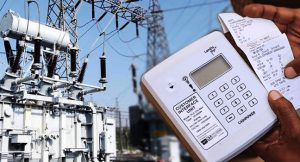 Manufacturers and labor unions have expressed strong opposition to the recent 240% tariff increase imposed by the Federal Government on electricity users receiving 20-hour power supply.
Manufacturers and labor unions have expressed strong opposition to the recent 240% tariff increase imposed by the Federal Government on electricity users receiving 20-hour power supply.
They are advocating for the continuation of electricity subsidies, warning that the removal of subsidies would have detrimental effects on businesses and exacerbate inflation.
The subsidy on electricity has been completely withdrawn for power consumers categorized under Band A, which constitutes approximately 15% of the total power user base in the country. The government made the announcement during a press briefing in Abuja conducted by the Nigerian Electricity Regulatory Commission (NERC) on Wednesday. The revised tariff sets the rate at N225 per kilowatt-hour, signifying a substantial 240% increase from the previous rate of N68/kWh. This new tariff came into effect on Wednesday.
Various stakeholders, including the organized private sector, the Nigeria Labour Congress (NLC), and the Trade Union Congress (TUC), have raised objections to the increased tariff, regardless of whether it applies to Band A users or not. They argue that the tariff hike will force manufacturers out of business, intensify inflationary pressures, and impede the growth of small and medium enterprises. Additionally, they contend that no region in Nigeria currently enjoys up to 20 hours of daily power supply.
NERC’s Vice Chairman, Musiliu Oseni, explained that the government’s decision to reduce the approximately N2.9 trillion allocated for power subsidies this year was driven by the unsustainable nature of the subsidy. Oseni disclosed that Band A customers represent 15% of the registered electricity consumers in the country, and NERC has downgraded some customers within this category. The downgrading was prompted by inadequate power supply from the distribution companies, which failed to meet the required hours of electricity provision.
Oseni further revealed that only approximately 17% of the total distribution feeders, amounting to less than 15% of customers, currently benefit from the 20-hour average service. Consequently, the tariff increase will primarily affect this customer segment. He emphasized that Band A customers who do not receive up to 20 hours of daily power supply will not be impacted by the tariff hike.
The NLC strongly criticized the government’s decision, describing it as insensitive and callous. The Trade Union Congress accused the government of prioritizing revenue generation at the expense of its citizens’ well-being. Members of the organized private sector also expressed concerns regarding potential job losses, increased operational costs, and inflationary pressures resulting from the tariff hike.
Industry experts, including Gabriel Idahosa, President of the Lagos Chamber of Commerce and Industry, highlighted the likelihood of job cuts and diminished profits for companies unable to cope with the increased operational costs. They anticipate that businesses may be forced to scale down operations, reduce staff, and explore alternative employment arrangements such as part-time or temporary positions.
The tariff hike has raised significant apprehension among manufacturers, labor unions, and industry stakeholders, who emphasize the importance of maintaining electricity subsidies to support businesses and mitigate economic challenges.
The recent hike in electricity tariffs has generated widespread concern among various stakeholders, including small and medium enterprises (SMEs), manufacturers, and economists. Moshood Lawal, the Head of Corporate Affairs at the Small and Medium Enterprises Development Agency, expressed worries that the tariff increase would lead to higher costs of running businesses and result in increased commodity prices. Lawal acknowledged that businesses would need to adapt and factor in the additional costs into their final prices.
The President of the Manufacturers Association of Nigeria, Francis Meshioye, described the tariff hike as “unpleasant” and announced that the association would issue a statement on the matter. Dele Kelvin Oye, the National President of the Nigerian Association of Chambers of Commerce, Industry, Mines, and Agriculture, warned that the tariff hike would raise the cost of doing business. While acknowledging the need to align energy costs with market realities, Oye emphasized the importance of considering the broader economic impact and engaging stakeholders to mitigate adverse effects on business competitiveness and consumer prices.
The Centre for the Promotion of Private Enterprise also weighed in, stating that while tariff reviews were inevitable, a 300% increase in one fell swoop is difficult to justify. The organization highlighted the funding and liquidity crisis in the power sector, which poses a significant risk to investments. They stressed the need to address fundamental issues within the electricity value chain beyond tariff hikes.
Economists and experts echoed these concerns, emphasizing that the tariff hike would have a ripple effect on the final consumer and could exacerbate the economic hardship experienced by the populace. They argued that subsidies are common in various sectors worldwide and suggested that the government should have explored alternative solutions to address energy production and mitigate the impact on citizens.
Overall, the opposition to the electricity tariff hike stems from the anticipated negative effects on businesses, including higher operational costs, increased commodity prices, and potential job losses. Stakeholders emphasize the need for transparent policy implementation, broader stakeholder engagement, and consideration of the broader economic impact when making such adjustments.
